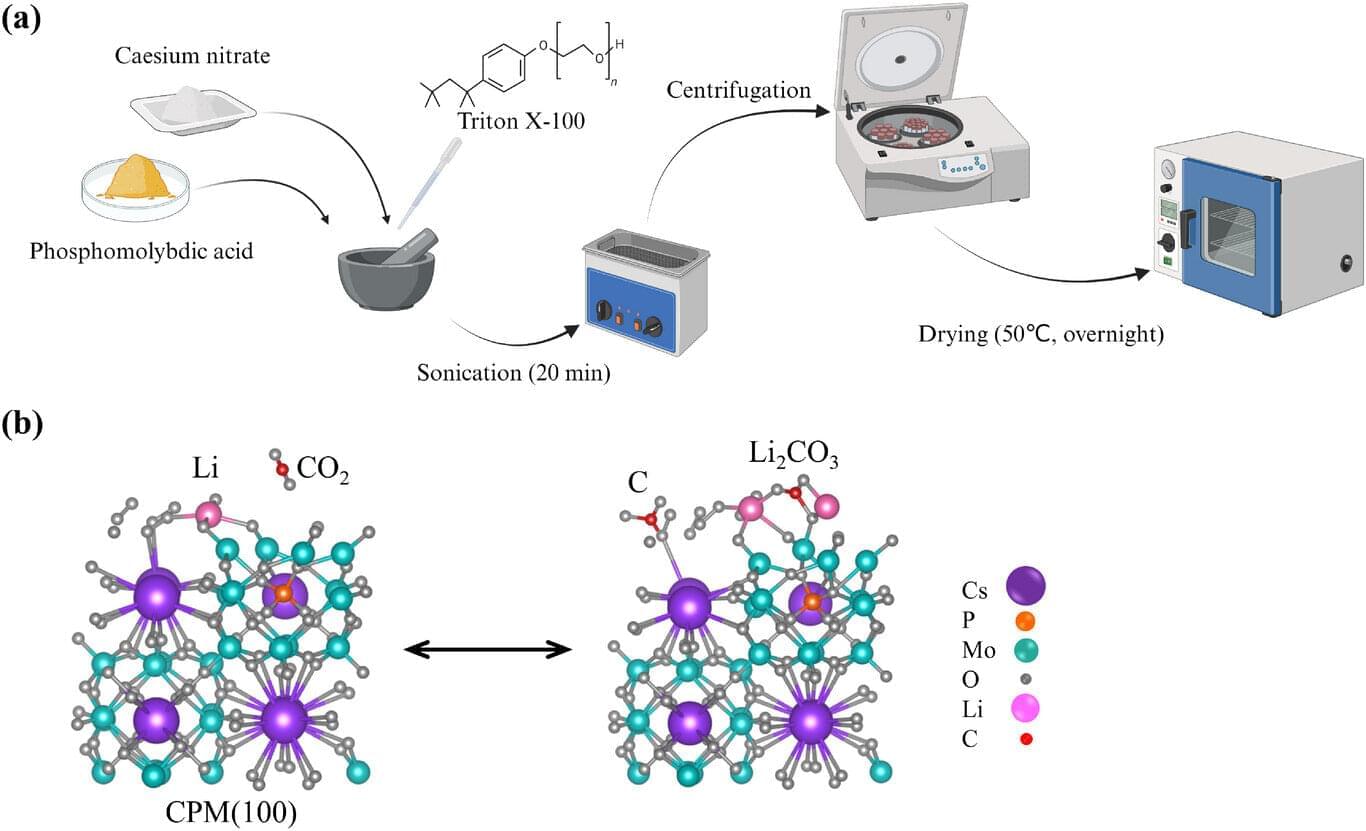Scientists at the University of Surrey have made a breakthrough in eco-friendly batteries that not only store more energy but could also help tackle greenhouse gas emissions. Lithium–CO2 “breathing” batteries release power while capturing carbon dioxide, offering a greener alternative that may one day outperform today’s lithium-ion batteries.
Until now, lithium-CO2 batteries have faced setbacks in efficiency—wearing out quickly, failing to recharge and relying on expensive rare materials such as platinum.
However, researchers from Surrey have found a way to overcome these issues by using a low-cost catalyst called cesium phosphomolybdate (CPM). Using computer modeling and lab experiments, tests showed this simple change allowed the battery to store significantly more energy, charge with far less power and run for over 100 cycles.
